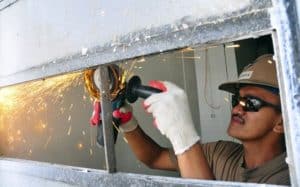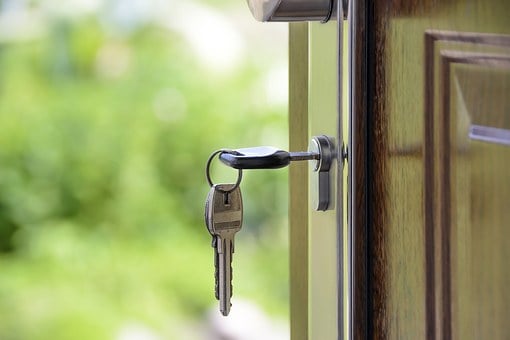You’ve Decided to Sell Your Commercial Real Estate, Now What?
There are a myriad of reasons why a commercial real estate owner has decided to sell their asset. Whether looking to cash out or turn around and invest in another property using a 1031 exchange, no matter the reason there is a right and a wrong way to sell an investment.
From office buildings to industrial assets to shopping centers, an owner looking to dispose of their commercial real estate should be aware of the various factors that will affect their sale. Below we outline the 3 major steps that any owner should complete prior to putting their investment on the market.
Step 1: Prime the Property to Sell
The best time to dispose a commercial real estate asset is when it’s considered most valuable.
Current Lease Periods and Terms
 The best time to realize maximum value is shortly after a property’s tenant leases have been renewed…for long lease periods of 10+ years. By doing so, the property guarantees a steady stream of secure income over the long-term, which is exactly what is every investor is looking for.
The best time to realize maximum value is shortly after a property’s tenant leases have been renewed…for long lease periods of 10+ years. By doing so, the property guarantees a steady stream of secure income over the long-term, which is exactly what is every investor is looking for.
Beyond the lease period it’s also important to establish terms that are attractive to investors. These most often include:
- A triple net lease (which is where the tenant is financially responsible for ongoing property expenses, including taxes, insurance, and maintenance, in addition to their rent and utilities)
- Higher lease rates
- The ability for the next owner to dictate any future lease terms
Perform Necessary Repairs and Maintenance
Much like selling residential real estate, no investor wants to purchase commercial real estate that is in poor condition and in need of a long list of repairs. In order to prepare an asset for sale it’s important that current owners make the “important” repairs. What are those? They are the items that are necessary to pass inspection and guarantee a smooth due diligence period.
Important repairs include any having to do with the building’s HVAC, foundation, structure, plumbing, roof and electric system. In order to accurately identify any hazards, damage and necessary repairs, owners must hire a licensed inspector or general contractor who can properly assess an asset.
Also, it’s important to note to not count out the importance of any aesthetic repairs as exterior finishes, painting, and entryways (sidewalks/doors/windows) can have a large impact.
Step 2: Hire a Commercial Real Estate Broker
After signing leases with favorable periods and terms, and making any necessary repairs, your commercial real estate asset is at its most valuable. This means it is ready to be priced and listed. Before doing either of those an owner should first hire a licensed

commercial Broker, as no major investment such as CRE should ever be done DIY.
A Broker will be responsible with expertly pricing your asset in order to place it on market. An asset’s listing price is one of the most important aspects of the sale process. It can mean a lot of offers and quick sale, or sitting stagnant without a peep of interest for months.
In order to determine that dollar amount a commercial Broker will be in charge of leading the asset valuation (see more on that below), gathering all the necessary paperwork and documentation, and researching market fundamentals and comparables.
Step 3: Complete the Asset Valuation
As mentioned above, there are many factors that come into play during a commercial real estate asset’s valuation process. These include the lease period and terms of the current tenants, building quality, property location, interest rates, demographic trends, and sales comparables.
While all of these factors have an impact on a property’s valuation, there is one factor that is the main driver of value: the annual return. Any buyer of a commercial asset expects one thing from their investment – that it will generate steady cash flow and strong annual income.
To determine that annual rate of return a Broker will need to determine the asset’s capitalization rate. In commercial real estate an asset’s annual return is referred as the capitalization rate, or cap rate, and it’s determined by dividing the Net Operating Income (NOI) from the property’s listing or sale price.
Example
If a commercial real estate asset is generating $200,000 of NOI per year and it has a listing price of $2,000,000, the cap rate would be 10 ($2,000,000 / $200,000). That means a potential investor can expect to get 10% of their $2,000,000 annually.
Beyond Valuation
After the commercial real estate has been primed, is in the hands of a quality Broker who assists in its valuation and pricing the property is now ready to be listed. From innovative marketing packages and online and offline listing platforms, the next important step is not only getting your asset in front of buyers, but qualified buyers.
At SVN | Southgate Realty, LLC we not only have the power of the international SVN platform we actively practice compensated cooperation, a belief that sharing fees gives incentive to a wider network of buyers. This means that we pledge to share 50% of the commission with our colleagues or competitors, 100% of time. What does this do for your asset? It gets your commercial real estate in front of more buyers, in less time, garnering more offers and ultimately increased value. Contact us today to see how our SVN Difference can work for your bottom line.

No Comments